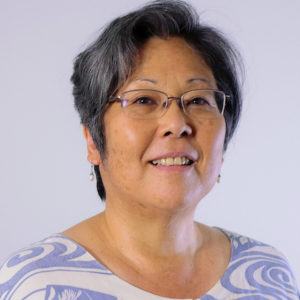Twenty-Eighth Sunday of Ordinary Time
October 13, 2019

Readings:
First Reading: 2 Kings 5: 14-17
Responsorial Psalm: Psalm 98: 1, 2-4,
Second Reading: 2 Timothy 2: 8-13
Gospel: Luke 17: 11-19
The River Jordan marks the border between Israel and Jordan, generally an arid landscape, and yet also has deep symbolic and spiritual significance. The Israelites crossed over the river into the Promised Land, symbolizing freedom and promise. Jesus was baptized in the River Jordan by John the Baptist, with the heavens opening with the Holy Spirit and God’s joy in the Beloved, marking the beginning of Jesus’ transformative ministry of unconditional love. In today’s first reading, following Elisha’s word, Naaman’s leprosy is cured by bathing in its waters, and he gives thanksgiving and praise to a God not his own. It is not just his leprosy that is healed but, his arrogance is humbled, transformed. In verse 12, he says, “Surely Abana and Pharpar, the rivers of Damascus, are better than any water in Israel? Could I not bathe in them and become clean?” As a border, it is a place of encounter. It is also a place of transition and transformation, as Naaman is cleansed and his faith deepened.
Today the Jordan River is on the list of 100 most endangered ecological sites, due to pollution and political conflicts over water. There is a small area that is kept clean where baptisms continue to occur, but generally the river is suffering.
My window in Chicago overlooks Lake Michigan, which derives from “michigamaa,” an indigenous word that means “large or great water.” I learned this recently at a Land Acknowledgement ceremony held at the Art Institute of Chicago in partnership with the American Indian Center. The land on which the institute is built is on the traditional homelands of the Council of the Three Fires: Ojibwe, Odawa, Potawatomi. The Miama, Ho-Chunk, Menominee, Sac and Fox also called the area home. The term “land” recognizes the ecosystem that includes the significant waterways that sustain life. The ceremony is meant to honor Indigenous knowledge and culture, their continuing synergy with the land, as well as partner together in decolonizing exhibits and mindsets. It is the beginning of healing a difficult history, with hope for the future, a transformative moment.
I am reminded of another “great water” Lake Titicaca, up at 12,000 feet in the southern Andes of Peru. Serving there in ministry among the Aymara people, I/we lived without light or running water. Meeting at the common well, we enjoyed conversations while we moved the frogs out of the way to haul water back to the house where it would be boiled and filtered for use. Imagine the first rains when we were able to collect clean, fresh water! A miraculous gift of creation! Here in urban Chicago of high rise living, when a water main breaks and we are without water for a few hours, the frustration and sense of entitlement only seem to increase. Fresh water is a human right, but we cannot forget that it is a gift that needs respect and care. Will we be like the nine out of the ten lepers healed by Jesus in today’s Gospel reading who fail to give thanks, perhaps out of a sense of entitlement? Or will we be like the Samaritan, who, realizing he was healed, immediately turns around to give thanks to Jesus? May the leprosy of our mindsets and practices be transformed for the healing of the earth and “all my relatives.”
Sr. Joanne Jaruko Doi, MM
Assistant Professor of Intercultural Studies and Ministry